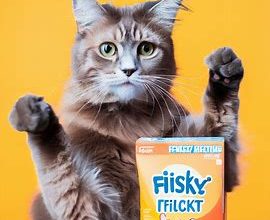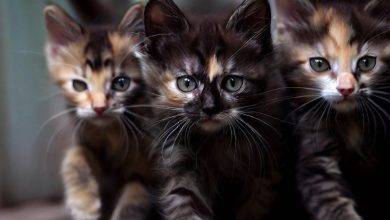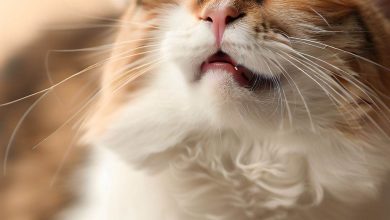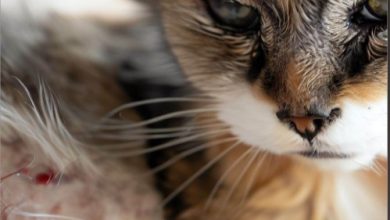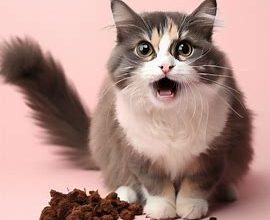Reasons Why Do Cats Lick Their Noses?
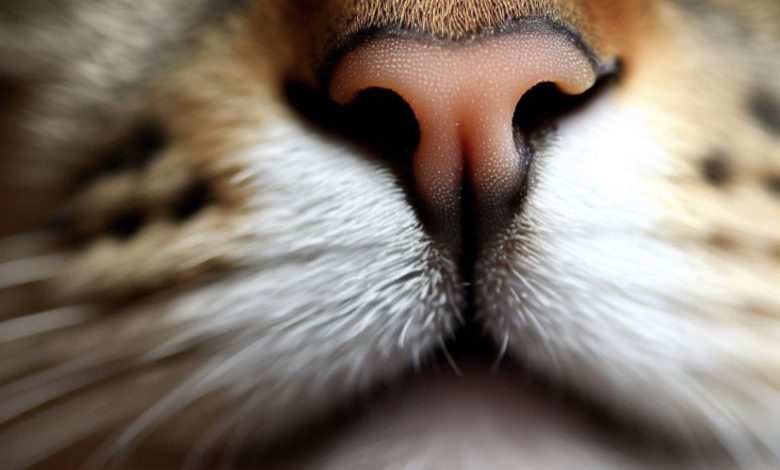
Hey there, fellow cat enthusiasts! Have you ever caught your furry friend in the act of indulging in some nose-licking action? It’s a cute and curious behavior that leaves us wondering, “Why do cats lick their noses?” Well, get ready to know these shocking reasons.
Reasons Why Cats Lick Their Noses?
Cats have a grooming instinct that drives them to keep themselves clean, and licking their noses is part of that behavior. By licking their noses, they can remove dirt, dust, or any other particles that may have accumulated on their sensitive whiskers and nasal passages.
Licking their noses also helps enhance their sense of smell by moistening the receptors and improving their ability to detect scents in their environment. Overall, nose licking is a natural behavior that serves both grooming and communication purposes for cats.
Also Read: 10 Proven Ways to Prevent Cats from Eating Plant
Understanding the Importance of Cat Hygiene
Is it normal for cats to lick their noses? Cats are the epitome of cleanliness, and their grooming rituals are legendary. You’ll often find them meticulously licking their fur, paws, and yes, their noses too! Nose-licking is a part of their grooming routine, where they use their tongues to remove any dirt, dust, or unwanted smells that may have accumulated. It’s their way of staying fresh and fabulous, ensuring that their adorable little snouts are spick and span.
But there’s more to it than just cleanliness. Cats are known for their acute senses, and their noses play a crucial role in gathering information about the world around them. When they lick their noses, they’re actually enhancing their sense of smell.
The moisture from their tongues activates the scent receptors in their noses, allowing them to detect and decipher the various scents that waft through the air. It’s like a built-in superpower, helping them navigate and understand their environment in a way only cats can.
Also Read: 10 Proven Ways to Prevent Cats from Eating Plant
The Role of Nose Licking in Regulating Body Temperature
Ah, the joy of a cool breeze on a hot summer day! Cats are no strangers to the discomfort of heat, and their noses play a surprising role in keeping them cool.
When they lick their noses, the evaporation of saliva helps cool down the blood vessels in that area, which, in turn, helps regulate their body temperature. It’s like having a built-in air conditioner!
So, the next time you see your feline friend indulging in some nose-licking, they might just be trying to beat the heat and keep themselves comfortably chilled.
Also Read: How To Keep A Cat Out Of A Room?
Moisturizing and Protection
Cats have delicate noses that are susceptible to drying out. That’s where their trusty tongues come to the rescue! When they lick their noses, the saliva acts as a natural moisturizer, preventing their noses from becoming dry or chapped. It’s like applying a moisturizing balm but with their very own tongue!
Additionally, the act of licking creates a protective barrier on their noses, keeping irritants at bay and ensuring their snouts stay in tip-top shape. So, the next time you see your cat engaging in some nose-licking, know that they’re not only grooming but also taking care of their little noses with some built-in kitty skincare.
Licking for Enhanced Flavor Perception
Cats are known for their discerning palates, and their noses play a significant role in their taste sensation. When they lick their noses, they’re not only cleaning or moisturizing, but they’re also priming their taste buds for maximum flavor enjoyment.
The moisture from their tongues helps activate the taste receptors in their mouths, making their taste buds more receptive to the flavors they’re about to savor.
It’s like a pre-dinner ritual, getting their taste buds ready for a culinary adventure. So, the next time you see your cat indulging in some nose-licking, it could be their way of enhancing their taste experience.
Finding Comfort in Nose Licking
We all have our self-soothing habits, and cats are no different. Nose licking can be a way for cats to calm themselves and find comfort in stressful situations. It’s a self-soothing behavior that provides them with a sense of security and relaxation.
So, if you notice your feline friend engaged in some nose-licking, they might be telling you that they need a little extra TLC and a moment to unwind. It’s their way of taking care of themselves and finding solace in their daily routine.
When Nose Licking Requires Attention
While nose licking is typically harmless, excessive or obsessive licking can sometimes signal underlying health issues. If you notice your cat constantly and excessively licking their nose to the point of irritation or hair loss, it’s essential to consult a veterinarian.
Excessive nose licking could be a sign of allergies, skin irritations, or even dental problems. Your vet can assess your cat’s health and provide appropriate guidance and treatment if needed. So, keep an eye on your furry friend and reach out to the experts if you have any concerns.
Conclusion
There you have it, fellow cat lovers! The mystery of why cats lick their noses has been unveiled. It’s a combination of grooming, scent collection, cooling off, moisturizing, enhancing taste, finding comfort, and even potential health indicators.
So, the next time you catch your beloved kitty indulging in some nose-licking shenanigans, appreciate the adorable quirk and know that they’re simply being their fabulous, self-caring selves. Cats are full of delightful surprises, and their nose-licking habit is just one of the many reasons we adore them!

